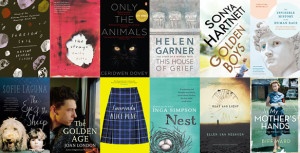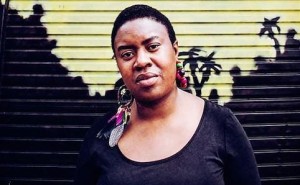
The latest tale from storyteller Stuart Bowden delivers a melancholic and bittersweet hour of entertainment.
Before us were our parents, and our collective human race. Before the lime green bulbous creation on stage before us were also her parents, her collective race, but they’re all dead now she tells us. This is the true story of her death, her extinction.
The latest of Stuart Bowden’s creations is this forest-dwelling creature living alone under a rock. In a mix of storytelling, dance and music, the tale of this creature, the last of her kind, on her last night alive, unfolds. Her loneliness is a melancholic offering to us. Her lamenting songs and soliloquies explore the loss of her family and friends and the emptiness of having her once adored perfect form now languishing with no-one who understands its beauty left to admire it.
While Bowden’s work is often discussed in terms like lo-fi, the truth is Before Us is deceptively simple. The lo-fi costume and lighting are an understated companion to the tightly woven, precisely executed story. The live looping Casio keyboard, banjo ukulele and sung soundtracks create an emotion-charged backing to the storytelling and dancing.
Where some use dance and physical theatre as an overblown dramatic technique, it is the darting precision of movement in the creature’s walk and the whole-body expression in her dancing that have the audience investing in her truth. There is no over-exaggerated, embarrassed stereotype of interpretive dance, but instead a measured expression of the emotion she is experiencing.
Taking the audience’s discomfort with the intimate performance and sometimes surreal material, Bowden commits entirely to his beautifully drawn character and her final hours. He uses suspense and repetition to deliberately provoke and disquiet the audience, keeping them as awkward and unsettled as she is laying her unfamiliar form bare before us. Her vulnerability makes for compelling viewing.
Bowden’s great talent is in taking the audience along with him, coaxing their participation in this surreal journey. Despite the usual resistance of being pulled further on stage and into the action that most audiences are comfortable with, when Bowden draws them into the tale they follow willingly. It is this talent that takes the surreal material from the unusual to the sublime.
In a tale that makes the audience confront death, loneliness, isolation and failed connection the humour here is a tender, wistful, perfectly bittersweet kind.
This review first appeared on Arts Hub as part of their MICF 2015 coverage.



